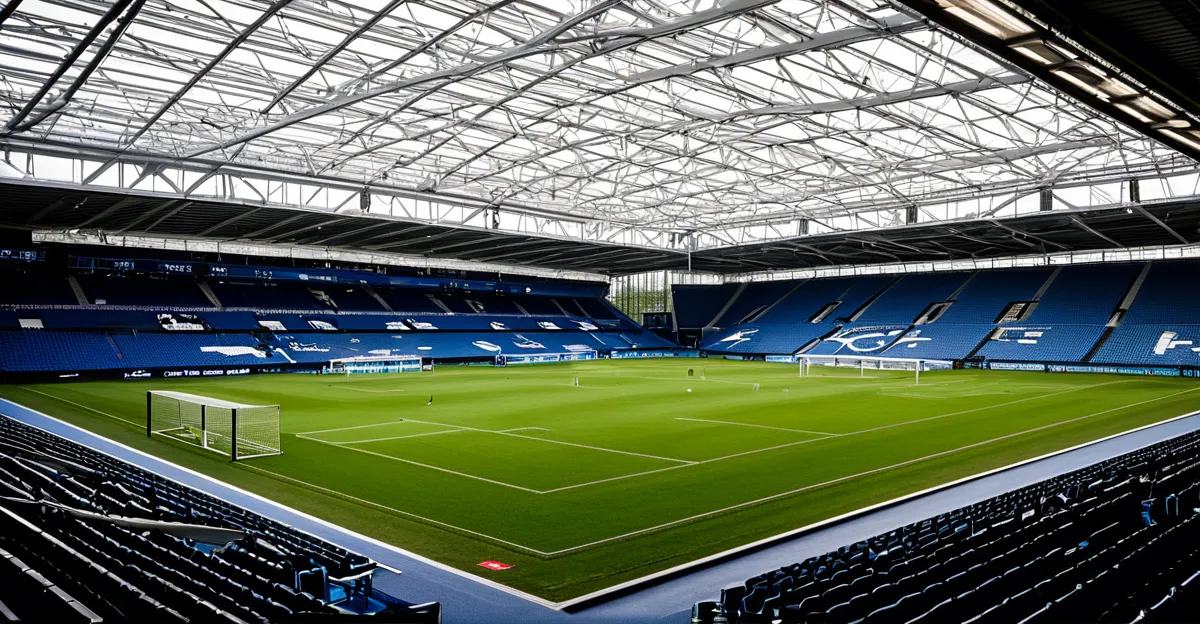Immediate Sustainability Actions in UK Sports Venues
Taking effective steps toward sustainability initiatives in UK sports venues often begins with adopting renewable energy sources. Many venues are installing solar panels or switching to green energy suppliers to significantly reduce their carbon footprint. Complementing this, implementing energy-efficient systems such as LED lighting and smart HVAC controls optimises power consumption, creating immediate savings and environmental benefits.
Waste reduction plays a crucial role in eco-friendly operations. UK sports venues are actively rolling out comprehensive recycling programs and cutting down single-use plastics, substantially lowering landfill contributions. This effort aligns with the growing need for venues to promote sustainability in their day-to-day activities.
This might interest you : What Are the Key Elements That Define British Sporting Culture?
Integrating sustainable materials into venue operations also supports greener practices. From biodegradable packaging in food outlets to sourcing eco-friendly cleaning products, these choices reduce environmental impact without compromising fan experience. Such actions highlight a clear commitment to embedding eco-friendly operations into the core of venue management.
In summary, immediate action across energy, waste, and materials creates a solid foundation for ongoing sustainability advances in UK sports venues.
Also to see : What Are the Future Predictions for UK Sports in the Next Decade?
Innovations in Facility Management and Infrastructure
In the pursuit of sustainable stadium design, UK sports venues are increasingly adopting green technology to enhance energy efficiency and reduce environmental impact. One of the primary advancements involves achieving green building certifications such as BREEAM, which guide stadium redesign toward lower energy consumption and improved resource use. These certifications ensure venues meet strict standards for sustainability initiatives UK sports venues can confidently promote.
Water conservation systems, including rainwater harvesting and efficient irrigation, play a critical role in reducing water waste. Sustainable drainage solutions help manage stormwater runoff, protecting local ecosystems and mitigating flood risks around venues.
Smart technology integration allows real-time monitoring of energy and water usage, enabling proactive management of resources. Facilities equipped with sensors and automation benefit from optimized operation schedules and immediate detection of inefficiencies. Together, these eco-friendly upgrades demonstrate a clear shift from traditional infrastructure towards intelligent, sustainable designs.
By focusing on facility management innovation, UK sports venues embed long-term sustainability into their operations, showcasing how green technology and thoughtful stadium design harmonize to advance eco-friendly operations.
Transportation and Fan Engagement for Sustainable Change
UK sports venues are increasingly prioritising sustainable transportation to lower event-related emissions. Encouraging fans and staff to use public transit, cycling, or electric vehicles contributes significantly to reducing carbon footprints. For example, expanding bike racks and partnering with transit services offer practical, eco-friendly travel options that ease congestion and pollution near venues.
How do venues promote fan involvement in sustainability efforts? Many organise awareness campaigns during events, highlighting the benefits of recycling, energy savings, and low-emission travel. These initiatives motivate spectators to participate actively, fostering a culture of environmental responsibility beyond the stadium walls.
Engagement extends to local communities through collaborative projects designed to support fan sustainability initiatives. By working closely with neighbourhood groups, venues develop programs that encourage recycling drives, green volunteering, and educational workshops. These partnerships build goodwill while amplifying the positive impact of sustainability initiatives UK sports venues champion.
In summary, combining sustainable transportation options with thoughtful community and fan engagement creates a robust platform for driving meaningful environmental change in and around sports venues.
Policy Shifts and Organisational Commitments
To embed sustainability initiatives UK sports venues effectively, many venues have introduced formal sustainability policies that define clear environmental goals. These policy frameworks establish targets for energy use, waste reduction, and carbon emissions, giving venue management strategic guidance. A defined venue management strategy ensures that sustainability becomes integral to decision-making at every organisational level rather than an afterthought.
Staff training and leadership development play pivotal roles in executing these policies. By educating employees on eco-friendly practices and appointing dedicated sustainability officers, venues strengthen accountability and operational consistency. This ensures that eco-friendly operations are maintained daily and improvements are continuously sought.
Collaboration extends beyond individual venues. Partnerships with sports leagues, local authorities, and corporate sponsors help standardise sustainable practices across the industry, driving collective responsibility. These alliances create shared frameworks and reporting mechanisms, amplifying impact while fostering innovation.
Ultimately, policy shifts and organisational commitments provide the governance backbone that supports, monitors, and sustains environmental progress. This strategic approach transforms isolated initiatives into a coherent, accountable system for long-term resilience in UK sports venues.







